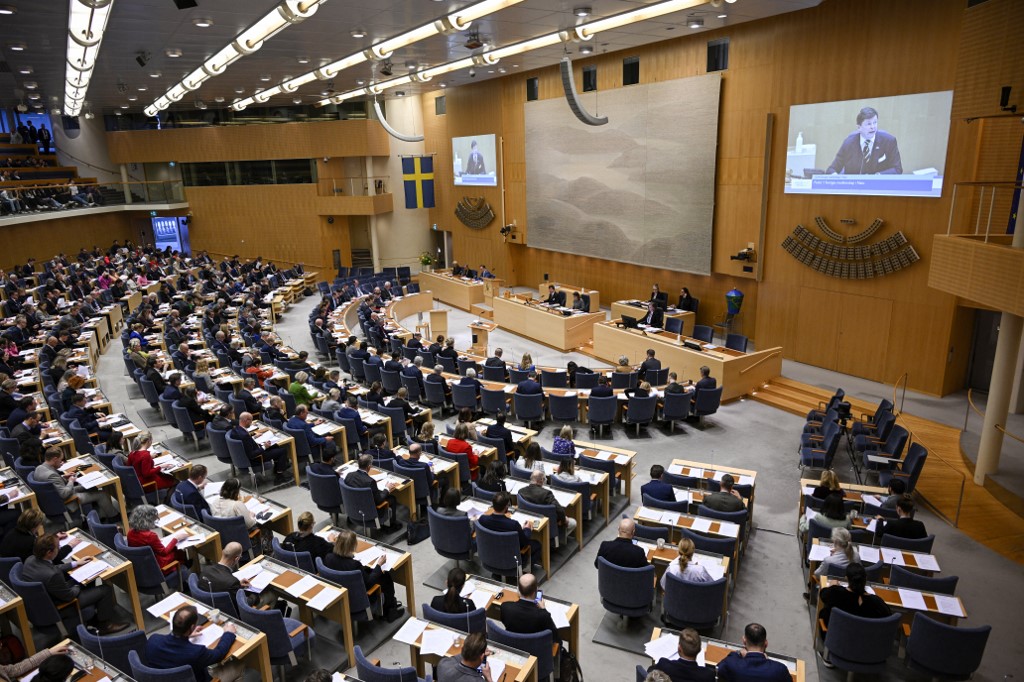Sweden’s parliament on Wednesday passed new legislation to ban activities linked to extremist groups, as it beefs up its terror laws, a key demand from Turkey to approve Stockholm’s NATO membership bid, Agence France-Presse reported.
With 268 votes in favor, the law — which criminalizes “participation in a terrorist organization” — was adopted by Sweden’s 349-seat parliament and will enter into force on June 1.
When presenting the legislation in February, Justice Minister Gunnar Strommer said it was a “considerable widening of the scope compared to current legislation”.
Actions such as handling equipment, organizing camps or locations for meetings, cooking or being in charge of transport for designated terrorist organizations can be considered crimes under the new law, Strommer explained.
In November, the country amended its constitution to allow the bill to move forward, as it was deemed to infringe on Sweden’s freedom of association laws.
Sweden has been adopting tougher anti-terror laws since 2017, when an Uzbek asylum seeker who had sworn allegiance to the Islamic State of Iraq and the Levant (ISIL) drove a truck down a busy shopping street in Stockholm, killing five people.
Cracking down on extremist groups has also been a key demand from Ankara before it will approve the country’s stalled bid to join NATO.
After Russia invaded Ukraine, Sweden along with Finland abandoned their long-held policy of non-alignment and applied to join the military alliance in May 2022.
But while Finland became a member in April, Turkey has blocked Sweden’s application, accusing the country of being a haven for “terrorists,” especially members of the outlawed Kurdistan Workers’ Party (PKK).
Among other things, pro-Kurdish demonstrations in Sweden, where PKK flags have been common, have been a thorn in Ankara’s side.
But Strommer noted in February that “partaking in a demonstration or at a meeting will not in itself be punishable.”

